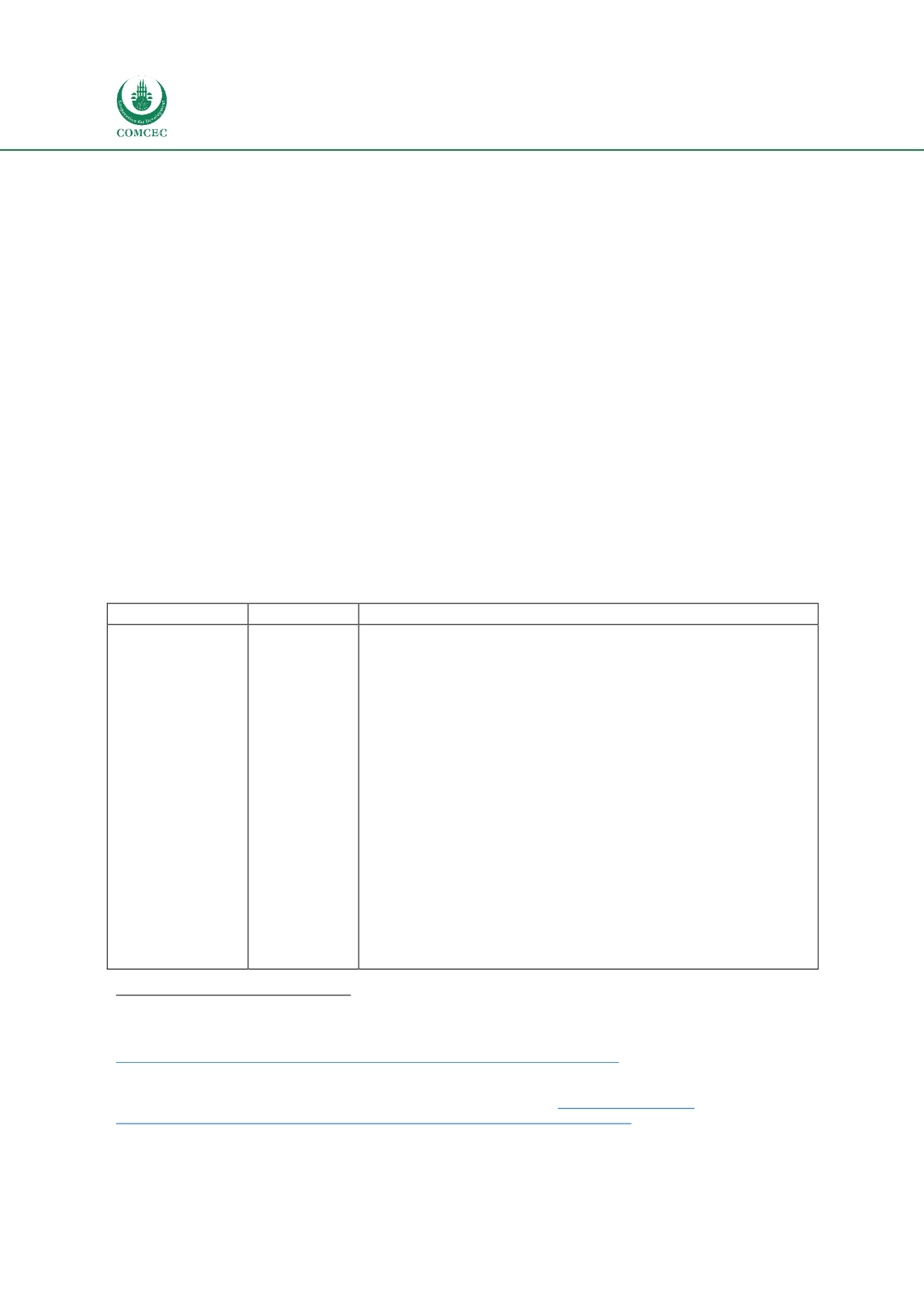

Improving Agricultural Market Performance
:
Creation and Development of Market Institutions
138
well as stable and reasonable food prices
( Table 7 – Overview of the six selected agricultural market institutions in Indonesia ).
The Government of Indonesia intervenes in the agricultural market through a number of state-
owned economic enterprises, which function to implement these policies and strategies. A
handful state-owned enterprises are directly controlled by the Ministry of Finance while the
vast majority operates under the supervision of the Ministry of State-Owned Enterprises.
400
Law No. 19/2003 governs these state-owned enterprises. A trend in privatization of these
state-owned enterprises can be witnessed though only for a number of industries (e.g. cement,
telecommunications, mining, energy, pharmaceuticals, construction, highways, steel
manufacturing, airlines, and banking). This state withdrawal can be seen in the context of
international developments with respect to market institutions and started large-scale
privatization of state-owned economic enterprises in the early 1990s
The number of state-owned enterprises reduced from 141 in 2012
401
to 119 as of November
2015.
402
The natural resource sector is exempt from state-owned enterprise privatization.
About 25 state-owned enterprises were active in the agricultural, forestry, and fishing sector in
2011. Examples include PT Pupuk Indonesia, which is engaged in manufacturing fertilizers,
403
Perkebunan Nusantara IV, which is active in the agro-industry sector and plantations (e.g.
palm oil and tea),
404
and Perkebunan Nusantara III (PTPN III), which is engaged in rubber and
various palm-related products (e.g. crude oil, kernel oil, kernel, and kernel meal).
405
Table 7
–
Overview of the six selected agricultural market institutions in Indonesia
Classification
Institution
Description
Commodity
Market
Regulation
Authority
National
Logistics
Board
Given the importance of rice to Indonesia’s food security, the
Indonesian Government established the National Logistics Board
(BULOG) in 2003 as a state-trading enterprise under the supervision
of the Ministry of State-Owned Enterprises.
406
However, BULOG’s
activities are coordinated with other Ministries, including the Ministry
of Agriculture, Ministry of Trade, Ministry of Finance, and Ministry of
Social Affairs.
BULOG’S three core mandates include:
407
1.
Maintain farmer production prices below the floor price;
2.
Ensure stabilization of consumer prices; and
3.
Maintain the rise stock of the Government.
With respect to maintaining farmer production prices and stabilizing
consumer prices, BULOG procures rice and paddies according to the
floor price set by the Government. It keeps this rice and paddies in its
warehouses, of which BULOG operates 4,000 across the country with a
capacity of 4.5 million tonnes. Rice and paddies are distributed evenly
across Indonesia and throughout the year, which is decided by the
Government.
400
WTO (2013),
Indonesia Trade Policy Review Report by the Secretariat
, Geneva: World Trade Organization.
401
Ibid
402
Export.gov (2016), Indonesia - Competition from State Owned Enterprises, available at
https://www.export.gov/article?id=Indonesia-competition-from-state-owned-enterprises[Accessed June 2017].
403
WTO (2013),
Indonesia Trade Policy Review Report by the Secretariat
, Geneva: World Trade Organization.
404
Ibid
405
Indonesia Investments (2017), Perkebunan Nusantara III (SOE), available a
t https://www.indonesia- investments.com/business/indonesian-companies/perkebunan-nusantara-iii-soe/item1204 [Accessed June 2017].
406
WTO (2013),
Indonesia Trade Policy Review Report by the Secretariat
, Geneva: World Trade Organization.
407
Interview conducted with BULOG in Jakarta, July 14, 2017


















